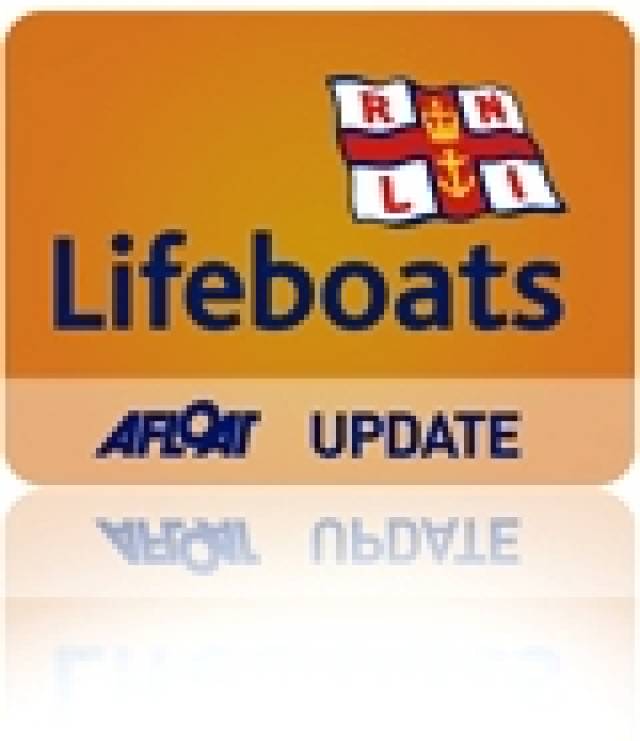#RNLI - The RNLI is calling on the public to ‘give it some welly’ and support Mayday, the charity’s major fundraising campaign in Dublin.
People are being asked to buy and wear a yellow welly pin badge or keyring which they can buy for €2 or hold a welly-themed event to raise funds for the lifeboats in their communities.
The yellow welly is an essential piece of RNLI crew kit. Waterproof with steel-capped toes, the specially designed boots keep the volunteer crew’s feet warm and dry while also protecting them in dangerous conditions on deck.
During gale force winds, rain and ice, keeping a sure footing can mean the difference between life and death for the volunteers.
A pair of yellow wellies for a volunteer costs €50. and supporting the RNLI’s Mayday campaign and buying a yellow welly keyring or pin badge will cost just €2.
Mayday will run from next Thursday 1 to Monday 5 May, with yellow welly keyrings and pin badges being sold by volunteers in locations around Dublin.
Badges and keyrings will be on sale in Dublin city centre on Thursday 1 May and Saturday 3 May, and will also be available at Northside Shopping Centre, Dundrum Town Centre and at selected train stations.
A special Yellow Welly Fare Day is also being held in Skerries in North Co Dublin on Sunday 4 May.
Volunteer lifeboat crew have responded to the Mayday calls of those in distress around Ireland’s coastline for 190 years. Lifeboat crew members who are on call 24/7, 365 days a year have spent an average of 137 hours at sea over Mayday weekends for the last 10 years.
Most have a full-time job, but they carry a pager and, when it goes off, they rush to the lifeboat station and launch the lifeboat to rescue those in danger.
Last year RNLI lifeboat stations in North and South Dublin launched 124 times and brought 158 people to safety.
Supporting Mayday, Howth RNLI crew member Ian Sheridan said: "We are delighted to be supporting the RNLI’s Mayday campaign. Each time our lifeboats launch in Howth, it is only possible through the generosity of the public.
"Callouts can range from a sinking yacht to an overdue fishing boat or a swimmer in trouble. Every call is important and could potentially be a life saved."
Skerries RNLI volunteer lifeboat crew member Gerry Canning added: "I am one of 1,500 volunteer crew members in Ireland and each of us receive valuable crew training, equipment and kit.
"We rely on the support and the generosity of the public to ensure the lifeboat crews based in Dublin and around Ireland can continue to save lives at sea."
Dun Laoghaire RNLI volunteer crew member Dave Farrell said: "Our lifeboat station in Dun Laoghaire is busy all year round and we train for every type of emergency.
"The RNLI Mayday appeal will help the charity raise funds for volunteer lifeboat crew so they can continue carrying out life-saving work."
RNLI community fundraising manager Pauline McGann added that the RNLI "is celebrating its 190th anniversary this year and during that time 144,000 lives have been saved by the charity.
"For some ideas on how to get involved and to see what is going on in your area please visit rnli.org/MAYDAY or call us on 01 895 1837. You can also show your support on social media by sharing your fundraising photos and using the hashtag #YellowWelly."
People can also support the campaign by texting Welly to 50300 to donate €4 – 100% of the text cost goes to the RNLI across most network providers. Some providers apply VAT which means a minimum of €1.63 will go to the RNLI. Please ask permission from the bill payer before you text.
































































